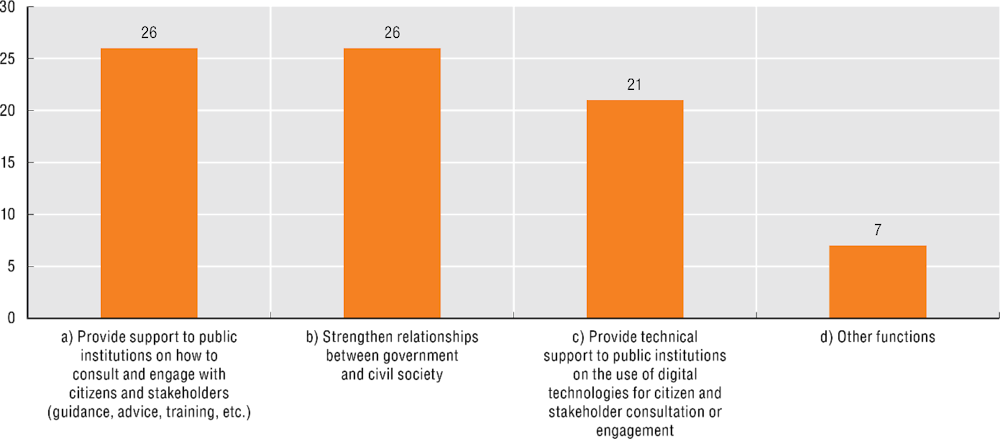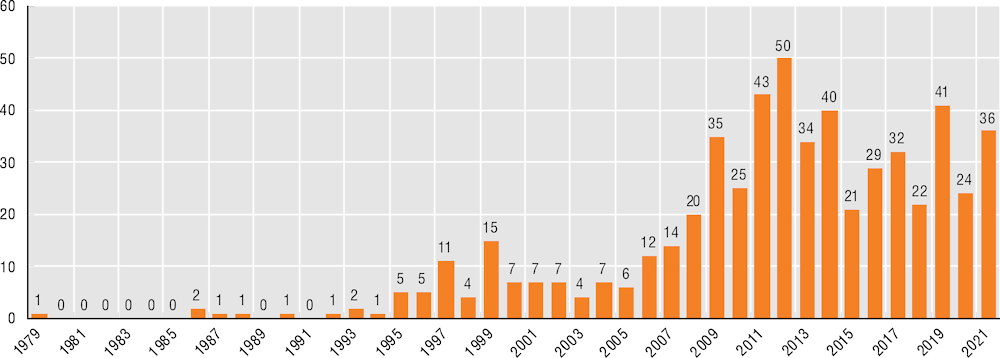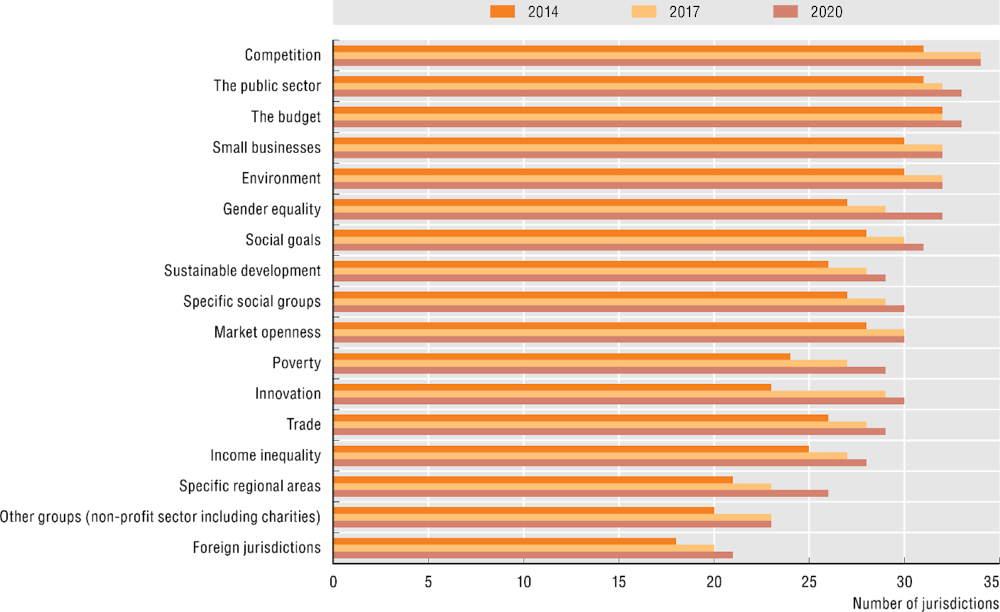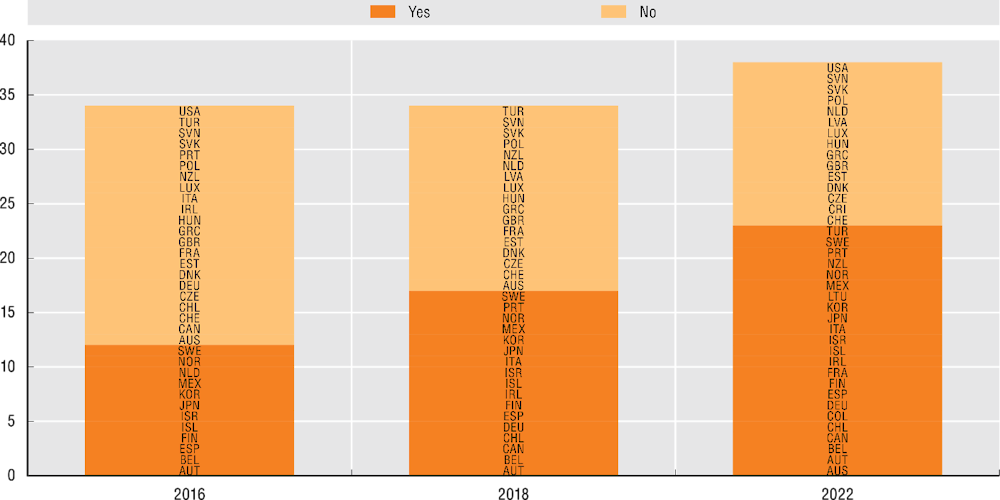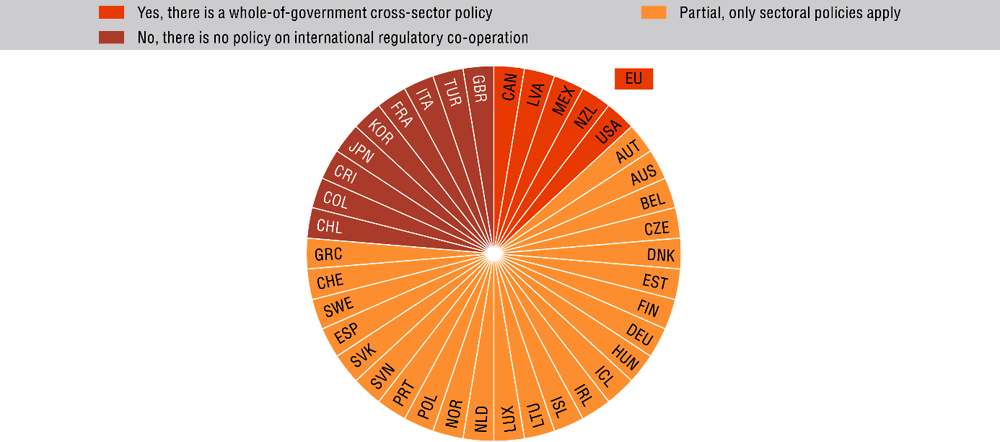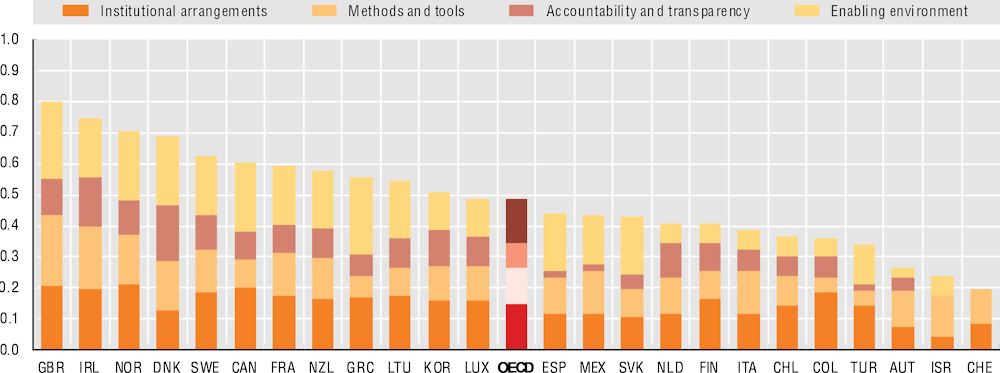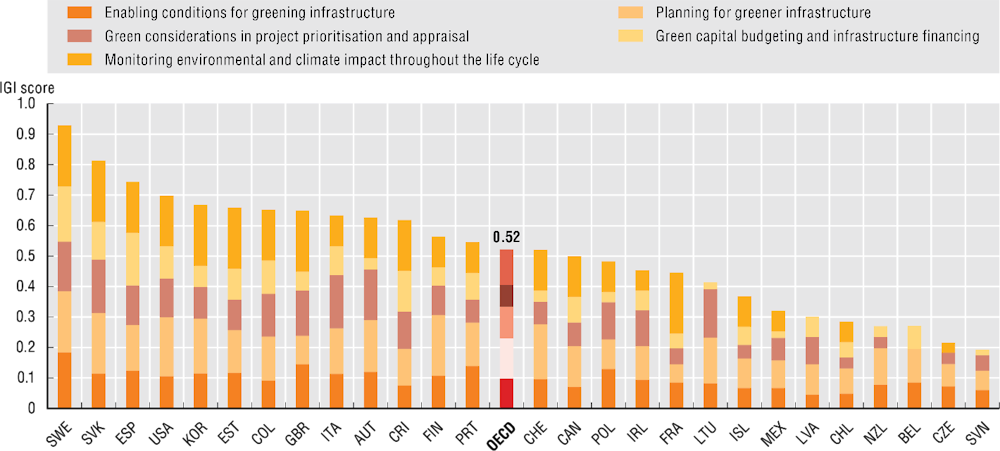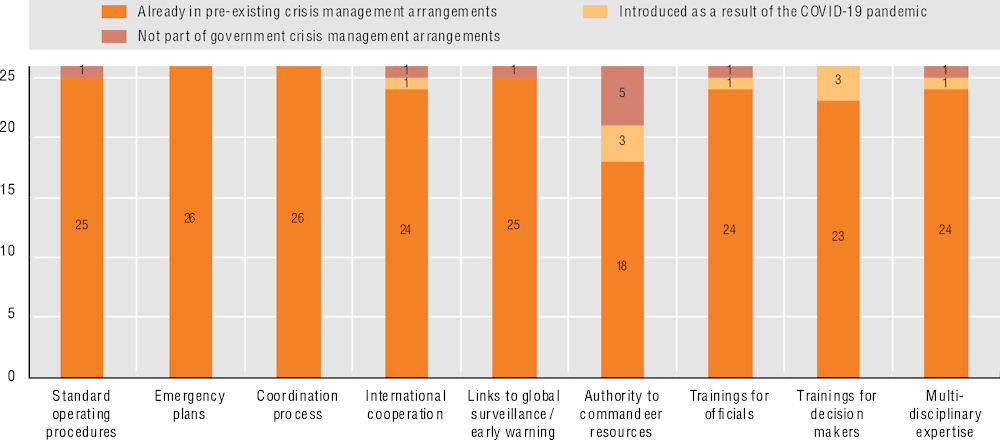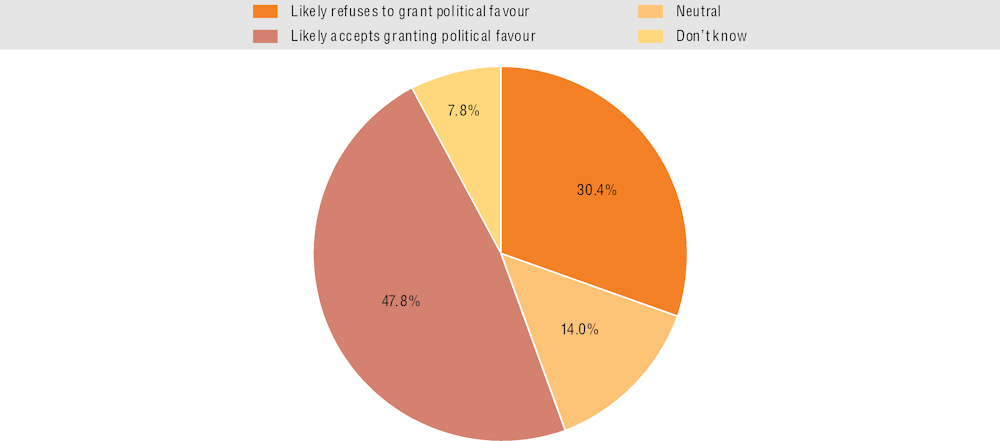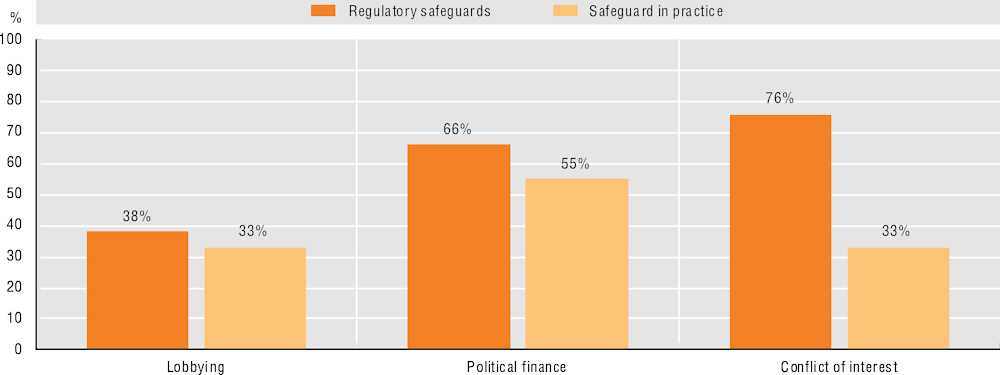[17] Acemoglu, D. et al. (2012), “The network origins of aggregate fluctuations”, Econometrica, Vol. 80/5, pp. 1977-2016, https://doi.org/10.3982/ecta9623.
[48] Alfonsi, C. et al. (2022), “Public communication trends after COVID-19: Innovative practices across the OECD and in four Southeast Asian countries”, OECD Working Papers on Public Governance, No. 55, OECD Publishing, Paris, https://doi.org/10.1787/cb4de393-en.
[86] AON (2023), Weather, Climate and Catastrophe Insight Report, Aon plc, https://www.aon.com/weather-climate-catastrophe/index.aspx.
[16] Baker, S., N. Bloom and S. Davis (2016), “Measuring economic policy uncertainty”, Quarterly Journal of Economics, Vol. 131/4, https://doi.org/10.1093/qje/qjw024.
[65] Bekker, M., D. Ivankovic and O. Biermann (2020), “Early lessons from COVID-19 response and shifts in authority: Public trust, policy legitimacy and political inclusion”, European Journal of Public Health, Vol. 30/5, pp. 854-855, https://doi.org/10.1093/eurpub/ckaa181.
[21] Black, R. et al. (2022), Environment of Peace: Security in a New Era of Risk, Stockholm International Peace Research Institute, https://doi.org/10.55163/lcls7037.
[24] Brezzi, M. et al. (2021), “An updated OECD framework on drivers of trust in public institutions to meet current and future challenges”, OECD Working Papers on Public Governance, No. 48, OECD Publishing, Paris, https://doi.org/10.1787/b6c5478c-en.
[33] Claassen, C. (2019), “Does public support help democracy survive?”, American Journal of Political Science, Vol. 64/1, pp. 118-134, https://doi.org/10.1111/ajps.12452.
[34] Dahlberg, S. and S. Holmberg (2013), “Democracy and bureaucracy: How their quality matters for popular satisfaction”, West European Politics, Vol. 37/3, pp. 515-537, https://doi.org/10.1080/01402382.2013.830468.
[64] De Seve, G. (2022), The Future of Agile Government, IBM Center for the Business of Government, https://www.businessofgovernment.org/report/future-agile-government.
[26] De Simone, E. et al. (2021), “Expectations About Future Economic Prospects and Satisfaction with Democracy: Evidence from European Countries during the COVID-19 Crisis”, Social Indicators Research, Vol. 159/3, pp. 1017-1033, https://doi.org/10.1007/s11205-021-02783-8.
[27] Devine, D. (2019), “Perceived government autonomy, economic evaluations, and political support during the Eurozone crisis”, West European Politics, Vol. 44/2, pp. 229-252, https://doi.org/10.1080/01402382.2019.1675130.
[35] Diamond, L. (2020), “Democratic regression in comparative perspective: Scope, methods, and causes”, Democratization, Vol. 28/1, pp. 22-42, https://doi.org/10.1080/13510347.2020.1807517.
[62] Edelman (2022), 2022 Edeleman Trust Barometer Special Report: The New Cascade of Influence, Edelman, https://www.edelman.com/trust/2022-trust-barometer/special-report-new-cascade-of-influence.
[97] EU (2022), Council agrees on substance of new measures on joint purchases of gas and a solidarity mechanism, European Council/Council of the European European, https://www.consilium.europa.eu/en/press/press-releases/2022/11/24/further-measures-to-tackle-the-energy-crisis-council-agrees-on-joint-purchases-of-gas-and-a-solidarity-mechanism/.
[109] EU Ombudsman (2023), Ombudsman asks Commission to deal urgently with systemic delays in processing public access to documents requests, European Ombudsman, https://www.ombudsman.europa.eu/en/news-document/en/167763.
[108] EU Ombudsman (2022), Ombudsman inquiry on Commission President’s text messages is a wake-up call for EU, European Ombudsman, https://www.ombudsman.europa.eu/en/press-release/en/158303.
[54] European Commission (2023), Economic governance review, European Commission website, https://economy-finance.ec.europa.eu/economic-and-fiscal-governance/economic-governance-review_en.
[107] European Court of Auditors (2022), EU COVID-19 Vaccine Procurement: Sufficient Doses Secured After Initial Challenges, but Performance of the Process not Sufficiently Assessed, Special Report, European Court of Auditors, https://www.eca.europa.eu/en/Pages/DocItem.aspx?did=61899.
[10] FAO (2021), 2021: The Impact of disasters and Crises on Agriculture and Food Security, Food and Agriculture Organization of the United Nations, Rome, https://doi.org/10.4060/cb3673en.
[20] Franzke, C. et al. (2022), “Perspectives on tipping points in integrated models of the natural and human Earth system: Cascading effects and telecoupling”, Environmental Research Letters, Vol. 17/1, p. 015004, https://doi.org/10.1088/1748-9326/ac42fd.
[30] Freedom House (2023), Freedom in the World: 2023, Freedom House, https://freedomhouse.org/sites/default/files/2023-03/FIW_World_2023_DigtalPDF.pdf.
[67] Gawaya, M., D. Terrill and E. Williams (2022), “Using rapid evaluation methods to assess service delivery changes: Lessons learned for evaluation practice during the COVID-19 pandemic”, Evaluation Journal of Australasia, Vol. 22/1, pp. 30-48, https://doi.org/10.1177/1035719x211057630.
[13] Georgieff, A. and R. Hyee (2021), “Artificial intelligence and employment: New cross-country evidence”, OECD Social, Employment and Migration Working Papers, No. 265, OECD Publishing, Paris, https://doi.org/10.1787/c2c1d276-en.
[49] Government of Portugal (2023), Portal de Participação Cívica, Participa.gov website, https://participa.gov.pt/base/home.
[53] Government of Spain (2021), Spanish Charter of Digital Rights, Official website of the President of the Government of Spain and the Council of Ministers, https://www.lamoncloa.gob.es/lang/en/gobierno/news/Paginas/2021/20210713_rights-charter.aspx.
[19] Haldane, A. (2013), “Rethinking the financial network”, in Fragile Stabilität – stabile Fragilität, https://doi.org/10.1007/978-3-658-02248-8_17.
[111] Hannah, K., S. Hattotuwa and K. Taylor (2022), “The murmuration of information disorders: Aotearoa New Zealand’s mis- and disinformation ecologies and the Parliament Protest”, Working Paper, The Disinformation Project, https://thedisinfoproject.org/wp-content/uploads/2022/05/The-murmuration-of-information-disorders-May-2022-Report-FULL-VERSION.pdf.
[18] Hynes, W. et al. (2020), “Bouncing forward: A resilience approach to dealing with COVID-19 and future systemic shocks”, Environment Systems and Decisions, Vol. 40/2, pp. 174-184, https://doi.org/10.1007/s10669-020-09776-x.
[89] IEA (2021), Net Zero by 2050: A Roadmap for the Global Energy Sector, International Energy Agency, https://www.iea.org/reports/net-zero-by-2050.
[6] IMF (2018), World Economic Outlook October 2018: Challenges to Steady Growth, International Monetary Fund, https://www.imf.org/en/Publications/WEO/Issues/2018/09/24/world-economic-outlook-october-2018.
[37] International IDEA (2022), Global Overview of COVID-19: Impact on Elections, International Institute for Democracy and Electoral Assistancen, https://www.idea.int/news-media/multimedia-reports/global-overview-covid-19-impact-elections.
[31] International IDEA (2022), The Global State of Democracy 2022: Forging Social Contracts in a Time of Discontent, International Institute for Democracy and Electoral Assistance, https://idea.int/democracytracker/sites/default/files/2022-11/the-global-state-of-democracy-2022.pdf.
[38] IPU (2022), Parliaments in a Time of Pandemic, Inter-Parliamentary Union, https://www.ipu.org/parliaments-in-time-pandemic.
[69] Kaur, M. et al. (2022), “Innovative capacity of governments: A systemic framework”, OECD Working Papers on Public Governance, No. 51, OECD Publishing, Paris, https://doi.org/10.1787/52389006-en.
[23] Laybourn, L., H. Throp and S. Sherman (2023), 1.5C – Dead or Alive? The Risks to Transformational Change from Reaching and Breaching the Paris Agreement Goal, Institute for Public Policy Research, https://www.ippr.org/research/publications/1-5c-dead-or-alive.
[58] Lind, E. and C. Arndt (2016), “Perceived fairness and regulatory policy: A behavioural science perspective on government-citizen interactions”, OECD Regulatory Policy Working Papers, No. 6, OECD Publishing, Paris, https://doi.org/10.1787/1629d397-en.
[46] Matasick, C., C. Alfonsi and A. Bellantoni (2020), “Governance responses to disinformation: How open government principles can inform policy options”, OECD Working Papers on Public Governance, No. 39, OECD Publishing, Paris, https://doi.org/10.1787/d6237c85-en.
[41] Mejia, M. (2022), Lisbon’s Citizens’ Council: Embedding deliberation into local governance, Participo website, https://medium.com/participo/lisbons-citizens-council-embedding-deliberation-into-local-governance-a4e366755c0f.
[88] Ministerio de Hacienda y Crédito Público (2021), Estrategia Nacional de Protección Financiera de Riesgo de Desastres, Epidemias y Pandemias, Government of Colombia.
[82] Moretti, D., D. Boucher and F. Giannini (2021), “Managing fiscal risks: Lessons from case studies of selected OECD countries”, OECD Journal on Budgeting, Vol. 21/1, https://doi.org/10.1787/7db1d712-en.
[83] Moretti, D., T. Braendle and A. Leroy (2021), “Balance sheet-based policies in COVID‑19 fiscal packages: How to improve transparency and risk analysis?”, OECD Journal on Budgeting, Vol. 2021/2, https://doi.org/10.1787/6b946136-en.
[45] Newman, N. (2022), Overview and Key Findings of the 2022 Digital News Report, Reuters Institute, https://reutersinstitute.politics.ox.ac.uk/digital-news-report/2022/dnr-executive-summary.
[80] OECD (2023), Drivers of Trust in Public Institutions in New Zealand, Building Trust in Public Institutions, OECD Publishing, Paris, https://doi.org/10.1787/948accf8-en.
[14] OECD (2023), Inequality, OECD website, https://www.oecd.org/social/inequality.htm/ (accessed on 30 March 2023).
[8] OECD (2023), OECD Economic Outlook, Interim Report March 2023: A Fragile Recovery, OECD Publishing, Paris, https://doi.org/10.1787/d14d49eb-en.
[98] OECD (2023), “Professionalising the public procurement workforce: A review of current initiatives and challenges”, OECD Public Governance Policy Papers, No. 26, OECD Publishing, Paris, https://doi.org/10.1787/e2eda150-en.
[103] OECD (2023), Public Employment and Management 2023: Towards a More Flexible Public Service, OECD Publishing, Paris, https://doi.org/10.1787/5b378e11-en.
[28] OECD (2023), “Understanding cultural differences and extreme attitudes in the 2021 OECD Trust Survey: Text analysis of open-ended responses”, OECD Working Papers on Public Governance, No. 57, OECD Publishing, Paris, https://doi.org/10.1787/ef25d883-en.
[78] OECD (2022), Anticipatory Innovation Governance Model in Finland: Towards a New Way of Governing, OECD Public Governance Reviews, OECD Publishing, Paris, https://doi.org/10.1787/a31e7a9a-en.
[87] OECD (2022), Building Financial Resilience to Climate Impacts: A Framework for Governments to Manage the Risks of Losses and Damages, OECD Publishing, Paris, https://doi.org/10.1787/9e2e1412-en.
[5] OECD (2022), Building Trust and Reinforcing Democracy: Preparing the Ground for Government Action, OECD Public Governance Reviews, OECD Publishing, Paris, https://doi.org/10.1787/76972a4a-en.
[3] OECD (2022), Building Trust to Reinforce Democracy: Main Findings from the 2021 OECD Survey on Drivers of Trust in Public Institutions, Building Trust in Public Institutions, OECD Publishing, Paris, https://doi.org/10.1787/b407f99c-en.
[11] OECD (2022), Climate Tipping Points: Insights for Effective Policy Action, OECD Publishing, Paris, https://doi.org/10.1787/abc5a69e-en.
[1] OECD (2022), “Declaration on Building Trust and Reinforcing Democracy”, OECD Legal Instruments, No. OECD/LEGAL/0484, OECD, Paris, https://legalinstruments.oecd.org/en/instruments/OECD-LEGAL-0484.
[61] OECD (2022), “Delivering for youth: How governments can put young people at the centre of the recovery”, OECD Policy Responses to Coronavirus (COVID-19), OECD Publishing, Paris, https://doi.org/10.1787/92c9d060-en.
[76] OECD (2022), Evaluation of Luxembourg’s COVID-19 Response: Learning from the Crisis to Increase Resilience, OECD Publishing, Paris, https://doi.org/10.1787/2c78c89f-en.
[66] OECD (2022), “First lessons from government evaluations of COVID-19 responses: A synthesis”, OECD Policy Responses to Coronavirus (COVID-19), OECD Publishing, Paris, https://doi.org/10.1787/483507d6-en.
[47] OECD (2022), Good Practice Principles for Public Communication Responses to Mis- and Disinformation, OECD, Paris, https://www.oecd.org/gov/open-government/good-practice-principles-public-communication-responses-to-mis-and-disinformation.pdf.
[4] OECD (2022), OECD Economic Outlook, Volume 2022 Issue 2, OECD Publishing, Paris, https://doi.org/10.1787/f6da2159-en.
[105] OECD (2022), OECD Public Integrity Indicators, OECD Public Integrity Indicators website, https://oecd-public-integrity-indicators.org/.
[63] OECD (2022), OECD Survey on Digital Government 2.0.
[50] OECD (2022), Open Government Review of Brazil: Towards an Integrated Open Government Agenda, OECD Public Governance Reviews, OECD Publishing, Paris, https://doi.org/10.1787/3f9009d4-en.
[101] OECD (2022), Questionnaire on the Governance of Critical Risks.
[55] OECD (2022), “Rights in the digital age: Challenges and ways forward”, OECD Digital Economy Papers, No. 347, OECD Publishing, Paris, https://doi.org/10.1787/deb707a8-en.
[77] OECD (2022), Support for fossil fuels almost doubled in 2021, slowing progress toward international climate goals, according to new analysis from OECD and IEA, OECD website, https://www.oecd.org/newsroom/support-for-fossil-fuels-almost-doubled-in-2021-slowing-progress-toward-international-climate-goals-according-to-new-analysis-from-oecd-and-iea.htm.
[59] OECD (2022), Survey on Gender Budgeting.
[85] OECD (2022), Survey on Green Budgeting.
[90] OECD (2022), Survey on the Governance of Infrastructure.
[25] OECD (2022), The Protection and Promotion of Civic Space: Strengthening Alignment with International Standards and Guidance, OECD Publishing, Paris, https://doi.org/10.1787/d234e975-en.
[40] OECD (2021), “Eight ways to institutionalise deliberative democracy”, OECD Public Governance Policy Papers, No. 12, OECD Publishing, Paris, https://doi.org/10.1787/4fcf1da5-en.
[2] OECD (2021), Government at a Glance 2021, OECD Publishing, Paris, https://doi.org/10.1787/1c258f55-en.
[84] OECD (2021), Independent Fiscal Institutions Database, OECD, https://www.oecd.org/gov/budgeting/OECD-Independent-Fiscal-Institutions-Database.xlsx.
[73] OECD (2021), Indicators of Regulatory Policy and Governance (iREG) Survey, OECD website, https://www.oecd.org/gov/regulatory-policy/indicators-regulatory-policy-and-governance.htm.
[106] OECD (2021), Lobbying in the 21st Century: Transparency, Integrity and Access, OECD Publishing, Paris, https://doi.org/10.1787/c6d8eff8-en.
[42] OECD (2021), OECD Database of Representative Deliberative Processes and Institutions, OECD, https://airtable.com/shrHEM12ogzPs0nQG/tbl1eKbt37N7hVFHF (accessed on 16 March 2023).
[113] OECD (2021), OECD Regulatory Policy Outlook 2021, OECD Publishing, Paris, https://doi.org/10.1787/38b0fdb1-en.
[70] OECD (2021), Open Data for Trust and Well-being: One Year After the First Wave of the COVID-19 Pandemic, OECD, Paris, https://www.oecd.org/gov/digital-government/7th-oecd-expert-group-meeting-on-open-government-data-summary.pdf.
[102] OECD (2021), Public Employment and Management 2021: The Future of the Public Service, OECD Publishing, Paris, https://doi.org/10.1787/938f0d65-en.
[91] OECD (2021), Regulatory Indicators Survey.
[74] OECD (2021), Survey on Building a Resilient Response: The Role of Centre of Government in the Management of the COVID-19 Crisis and Future Recovery, OECD, https://www.oecd.org/gov/survey-the-role-of-centre-of-government-in-the-management-of-the-covid19-crisis-and-future-recovery-efforts.pdf.
[57] OECD (2020), Governance for Youth, Trust and Intergenerational Justice: Fit for All Generations?, OECD Public Governance Reviews, OECD Publishing, Paris, https://doi.org/10.1787/c3e5cb8a-en.
[15] OECD (2020), How’s Life? 2020: Measuring Well-being, OECD Publishing, Paris, https://doi.org/10.1787/9870c393-en.
[43] OECD (2020), Innovative Citizen Participation and New Democratic Institutions: Catching the Deliberative Wave, OECD Publishing, Paris, https://doi.org/10.1787/339306da-en.
[93] OECD (2020), Integrating Responsible Business Conduct in Public Procurement, OECD Publishing, Paris, https://doi.org/10.1787/02682b01-en.
[39] OECD (2020), OECD Survey on Open Government.
[72] OECD (2020), “Recommendation of the Council on International Regulatory Co-operation to Tackle Global Challenges”, OECD Legal Instruments, No. OECD/LEGAL/0475, OECD, Paris, https://legalinstruments.oecd.org/en/instruments/OECD-LEGAL-0475.
[114] OECD (2020), “Regulatory quality and COVID-19: The use of regulatory management tools in a time of crisis”, OECD Policy Responses to Coronavirus (COVID-19), OECD Publishing, Paris, https://doi.org/10.1787/b876d5dc-en.
[56] OECD (2020), Reviewing the Stock of Regulation, OECD Best Practice Principles for Regulatory Policy, OECD Publishing, Paris, https://doi.org/10.1787/1a8f33bc-en.
[60] OECD (2020), “Youth and COVID-19: Response, recovery and resilience”, OECD Policy Responses to Coronavirus (COVID-19), OECD Publishing, Paris, https://doi.org/10.1787/c40e61c6-en.
[81] OECD (2019), Budgeting and Public Expenditures in OECD Countries 2019, OECD Publishing, Paris, https://doi.org/10.1787/9789264307957-en.
[110] OECD (2019), “Corruption risks associated with citizen- and resident-by-investment schemes”, Scoping note, 2019 OECD Anti-Corruption and Integrity Forum, OECD, Paris, https://www.oecd.org/corruption/integrity-forum/oecd-corruption-risks-of-citizen-and-resident-by-investment-schemes-scoping-note-2019.pdf.
[94] OECD (2019), Government at a Glance 2019, OECD Publishing, Paris, https://doi.org/10.1787/8ccf5c38-en.
[12] OECD (2019), OECD Employment Outlook 2019: The Future of Work, OECD Publishing, Paris, https://doi.org/10.1787/9ee00155-en.
[68] OECD (2017), Fostering Innovation in the Public Sector, OECD Publishing, Paris, https://doi.org/10.1787/9789264270879-en.
[99] OECD (2015), The Changing Face of Strategic Crisis Management, OECD Reviews of Risk Management Policies, OECD Publishing, Paris, https://doi.org/10.1787/9789264249127-en.
[104] OECD (2010), “Recommendation of the Council on Principles for Transparency and Integrity in Lobbying”, OECD Legal Instruments, No. OECD/LEGAL/0379, OECD, Paris, https://legalinstruments.oecd.org/en/instruments/OECD-LEGAL-0379.
[100] OECD (forthcoming), Implementation Report of the OECD Recommendation on the Governance of Critical Risks.
[95] OECD (forthcoming), Managing risks in the public procurement of goods, services and infrastructure.
[75] OECD (forthcoming), OECD Centres of Government Survey 2023.
[71] OECD (forthcoming), Survey on Institutional Capacities and Tools to Enhance Policy Coherence for Sustainable Development.
[92] OECD (forthcoming), Survey on the Governance of Infrastructure 2022.
[44] OECD et al. (2022), Latin American Economic Outlook 2022: Towards a Green and Just Transition, OECD Publishing, Paris, https://doi.org/10.1787/3d5554fc-en.
[29] Papada, E. et al. (2023), Democracy Report 2023: Defiance in the Face of Autocratization, V-Dem Institute, https://www.v-dem.net/documents/30/V-dem_democracyreport2023_highres.pdf.
[32] Pew Research Center (2022), Social Media Seen as Mostly Good for Democracy Across Many Nations, But U.S. is a Major Outlier, Pew Research Center, https://www.pewresearch.org/global/2022/12/06/social-media-seen-as-mostly-good-for-democracy-across-many-nations-but-u-s-is-a-major-outlier/.
[22] Sciepura, B. and E. Linos (2020), “When perceptions of public service harms the public servant: Predictors of burnout and compassion fatigue in government”, Review of Public Personnel Administration, https://doi.org/10.1177/0734371X221081508.
[112] Smith, P. (2022), Parliament amok: A photo essay, Radio New Zealand website, https://www.rnz.co.nz/national/programmes/the-house/audio/2018833066/parliament-amok-a-photo-essay (accessed on 22 March 2023).
[36] Solijonov, A. (2016), Voter Turnout Trends around the World, International Institute for Democracy and Electoral Assistance, https://www.idea.int/sites/default/files/publications/voter-turnout-trends-around-the-world.pdf.
[52] Timeout Foundation (2020), Summary of Lockdown Dialogues gives an overview of the current situation in society, Timeout Foundation website, https://www.timeoutdialogue.fi/news/summary-of-lockdown-dialogues/.
[79] Tõnurist, P. and A. Hanson (2020), “Anticipatory innovation governance: Shaping the future through proactive policy making”, OECD Working Papers on Public Governance, No. 44, OECD Publishing, Paris, https://doi.org/10.1787/cce14d80-en.
[9] Tooze, A. (2022), “Welcome to the world of the polycrisis”, Financial Times, https://www.ft.com/content/498398e7-11b1-494b-9cd3-6d669dc3de33.
[96] Vogler, S. et al. (2021), “European collaborations on medicine and vaccine procurement”, Bulletin of the World Health Organization, Vol. 99/10, pp. 715-721, https://doi.org/10.2471/blt.21.285761.
[51] Webster, N. (2020), Public discussions on COVID-19 lockdown in Scotland, Participo website, https://medium.com/participo/public-discussions-on-covid-19-lockdown-in-scotland-8f34a586c69c.
[7] World Bank (2022), World Development Report 2022: Finance for an Equitable Recovery, The World Bank, https://doi.org/10.1596/978-1-4648-1730-4.






